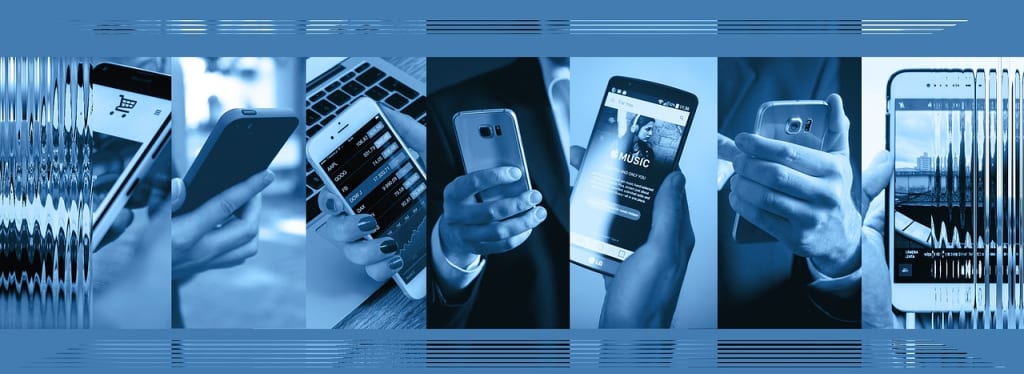The impact of blue light on sleep and health
By understanding how blue light affects our circadian rhythms and taking steps to manage our exposure, we can protect our sleep quality and overall health

The impact of blue light on sleep and health is a topic that has gained significant attention in recent years, especially with the increased use of electronic devices. Blue light, a type of visible light with a short wavelength, is emitted by the sun as well as digital screens such as smartphones, computers, and televisions.
The Science of Blue Light
Circadian Rhythms: Our bodies have an internal clock known as the circadian rhythm, which regulates sleep-wake cycles over a 24-hour period. This rhythm is influenced by natural light and darkness. Blue light, in particular, plays a crucial role in maintaining alertness and wakefulness during the day.
Melatonin Suppression: Exposure to blue light, especially during the evening and night, can suppress the production of melatonin, a hormone that signals to our bodies that it's time to sleep. Melatonin levels typically rise in the evening as it gets dark, helping us feel sleepy. However, blue light exposure delays this process, making it harder to fall asleep and stay asleep.
Sources of Blue Light
Natural Sources: The sun is the primary source of blue light, which is beneficial during the day as it boosts alertness, mood, and cognitive function.
Artificial Sources: Digital screens, LED lights, and fluorescent lighting are significant artificial sources of blue light. With the proliferation of electronic devices, we are exposed to more blue light than ever before, especially during the evening hours.
Health Impacts
Sleep Disruption: Prolonged exposure to blue light in the evening can lead to difficulty falling asleep, reduced sleep quality, and shorter sleep duration. This disruption can have cascading effects on overall health.
Eye Strain and Discomfort: Staring at screens for extended periods can cause digital eye strain, characterized by symptoms like dryness, irritation, and difficulty focusing.
Mental Health: Poor sleep quality is linked to a range of mental health issues, including depression and anxiety. Consistent exposure to blue light at night can exacerbate these conditions by disrupting sleep patterns.
Metabolic Health: Disrupted sleep can negatively affect metabolism and is associated with an increased risk of weight gain, obesity, diabetes, and cardiovascular diseases. The body's ability to regulate blood sugar and insulin levels can be impaired by irregular sleep patterns influenced by blue light exposure.
Mitigating the Effects
Use of Blue Light Filters: Many devices now come with built-in blue light filters or "night mode" settings that reduce blue light emission during evening hours. These settings can help mitigate the impact on sleep by shifting the display to warmer tones.
Specialized Glasses: Blue light blocking glasses are designed to filter out blue light and can be worn while using electronic devices in the evening.
Lighting Choices: Opting for warmer, dim lighting in the evening can help prepare the body for sleep. Avoiding bright, white LED lights before bedtime can also be beneficial.
Screen Time Management: Limiting screen time, especially in the hour before bed, can significantly improve sleep quality. Engaging in relaxing activities such as reading a book (preferably a physical one), practicing meditation, or taking a warm bath can help signal to your body that it's time to wind down.
Exposure to Natural Light: During the day, increasing exposure to natural light can help maintain healthy circadian rhythms. Spending time outdoors, especially in the morning, can boost alertness and mood.
The impact of screen time reduction strategies on sleep
Screen time reduction strategies can significantly impact sleep quality and overall health. In our modern, tech-driven world, excessive screen time has become a common issue, contributing to various sleep problems.
The Impact of Screen Time on Sleep
Blue Light Exposure: Screens from phones, tablets, computers, and TVs emit blue light, which can interfere with the production of melatonin, the hormone responsible for regulating sleep-wake cycles. Blue light exposure, especially before bedtime, can delay the onset of sleep, reduce sleep duration, and lower sleep quality.
Mental Stimulation: Engaging with screens before bed, such as playing video games, browsing social media, or watching stimulating content, can keep the brain active and alert. This mental stimulation can make it harder to wind down and fall asleep.
Disrupted Circadian Rhythms: Prolonged screen time can disrupt the body's internal clock or circadian rhythms, making it difficult to maintain consistent sleep patterns. This disruption can lead to insomnia and other sleep disorders.
Reduced Sleep Quality: The content consumed on screens can affect emotions and stress levels. Negative news, social media comparisons, or intense video games can increase anxiety or stress, further impairing sleep quality.
Benefits of Screen Time Reduction
Improved Melatonin Production: Reducing screen time, especially in the hour leading up to bedtime, allows the body to produce melatonin naturally, promoting better sleep onset and quality.
Enhanced Relaxation: Limiting screen time helps the brain to relax and unwind, creating a more conducive environment for sleep.
Better Sleep Hygiene: Incorporating screen time reduction as part of a broader sleep hygiene routine can lead to more consistent and restorative sleep patterns.
Reduced Eye Strain: Less screen time can alleviate digital eye strain, which can cause discomfort and contribute to sleep disturbances.
Effective Screen Time Reduction Strategies
Establish a Digital Curfew: Set a specific time each evening to turn off all screens. Ideally, this should be at least one hour before bedtime. Use this time for relaxing activities like reading a book (preferably a physical one), taking a warm bath, or practicing mindfulness exercises.
Use Blue Light Filters: Many devices have built-in blue light filters or night modes that reduce blue light emissions. Activate these settings in the evening to minimize the impact on melatonin production.
Create a Screen-Free Bedroom: Make the bedroom a screen-free zone. Avoid bringing phones, tablets, or laptops into the bedroom, and use an old-fashioned alarm clock instead of a smartphone to reduce temptation.
Engage in Alternative Activities: Replace screen time with activities that promote relaxation and readiness for sleep. These could include gentle yoga, meditation, journaling, or listening to calming music or audiobooks.
Set Boundaries for Screen Use: Establish specific times during the day for screen use and stick to them. This can help reduce overall screen time and create a healthier balance.
Educate and Involve Family Members: Encourage family members to join in on screen time reduction strategies. Creating a household culture that values offline activities can provide mutual support and accountability.
Monitor and Track Usage: Use apps or built-in device settings to monitor and track screen time. This awareness can help identify patterns and make it easier to set realistic goals for reduction.
Opt for Non-Digital Hobbies: Explore hobbies and activities that don't involve screens, such as gardening, cooking, crafting, or exercising. These activities can provide fulfillment and relaxation without the negative impact on sleep.
About the Creator
Enjoyed the story? Support the Creator.
Subscribe for free to receive all their stories in your feed. You could also pledge your support or give them a one-off tip, letting them know you appreciate their work.






Comments
There are no comments for this story
Be the first to respond and start the conversation.